QuestionHi Sandra,
I am an Australian Vet with rats of my own (from which I have removed three tumours already - all of which were benign) as well as a client who owns two rats on which I have recently operated to remove mammary lumps.
I have two questions for you.
1. Do you have a dose rate and frequency for the use of Lupron to prevent recurrane of these tumours?
2. Do you have any tips for closing the skin wounds in such a way as to mininmise irritation and self mutilation? I use bupivicaine at the surgery site, use opiate and NSAID analgesia and I currently close with 5-0 or 6-0 intradermal PDS and use a small amount of vetbond tissue glue over the top. I have found that a vetrap (or similar) body bandage is pretty effective at preventing rats from chewing but if you have any other tips they would be greatly appreciated.
Thanks
Paul Crocker
AnswerHi Paul
Thanks for writing. First of all keep in mind I am not a vet and I do not assist in surgeries, only observe from time to time so I cannot tell you exactly what it is the Vets here do as far as closure goes etc... but what I do know, such as the use of bupivicaine as a local, is used often as is the tissue glue too.
Here are the only tips I can give you to prevent the rat from going after their incision: What I do is study rat behavior and these are my findings over the years concerning rats and their surgical site. It seems that once the surgery is over and everyone can breathe easier, the next obstacle to hurdle is to keep the rat from messing with the vets "Art work"! :)
My findings are as follows:
To tight of sutures strangle tissue and can cause the stitches to be painful. Making the stitches too tight is one reason rats will gnaw to remove them causing possible self mutilation as well.
Also, the glue is often used but care should be used not to get any on the fur or this is when the rat will also go for the glue trying to remove it all
Also, I have noticed over the years that although some vets refrain from sending the rat home on opiates for fear the rat may feel "too good" and possibly do too much running around etc...and possibly cause the surgical site to open up, I feel that this actually keeps the rat so comfortable that they leave the surgical site alone. When the rat has pain, it tends to go for the area that they think is causing the pain thus in turn they start to chew and rip at the sutures. If their pain is controlled, they rest rather than fuss with the stitches.
I have seen more rats pull their stitches out and were sent home only on NSAIDS rather than opiates and the rats that were given opiates left everything alone and healed without incident.
I have found that an animal that continues to have pain after surgery can be stressed thus in turn cause the immune system to be compromised and the healing is delayed.
I am not sure how much help this is for you but hopefully at least you can see where the rat is coming from. Give him the opiates! :) I suggest using it for at least the first 3 days instructing the rat keeper to use it as needed on day 3 but to use it regardless of how the rat acts for the first 48 hours. Rats hide pain, but that doesnt mean they dont feel it.
As for the lupron: It is available as an injectable drug in several forms (1-month depot, 3-month depot and 4-month depot). In ferrets, some vets use the 3 and 4 month injectable but with rats and lowering estrogen levels to prevent mammary tumors,they should get a SQ injection once a month.
Although lupron is used in ferrets for adrenal disease, it is fairly new as far as being used in rats other than in labs, of course. It only stands to reason that since mammary tumors mainly are fueled by high estrogen levels after estrus cycles ends, that lupron would be a benefit in halting the growth of estrogen fueled mammary tumors. I do believe it is being recognized more in the exotic vet practice and hopefully the word will spread among the general Vets that treat rats mammary tumors as well. One success story is my own: It gave my 3 year old wild rat many more months to live after two surgeries were disappointing when the tumors grew back as soon as the surgical site healed.
Hope this helps!!

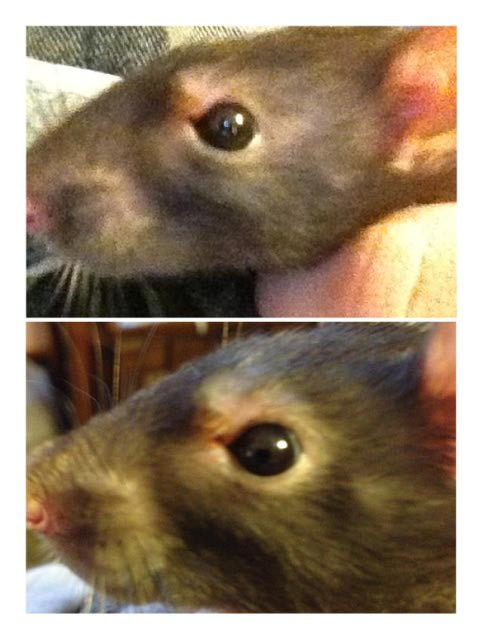 Weird bump
Question
Eye bumb
Hello! Recently Ive noticed a
Weird bump
Question
Eye bumb
Hello! Recently Ive noticed a
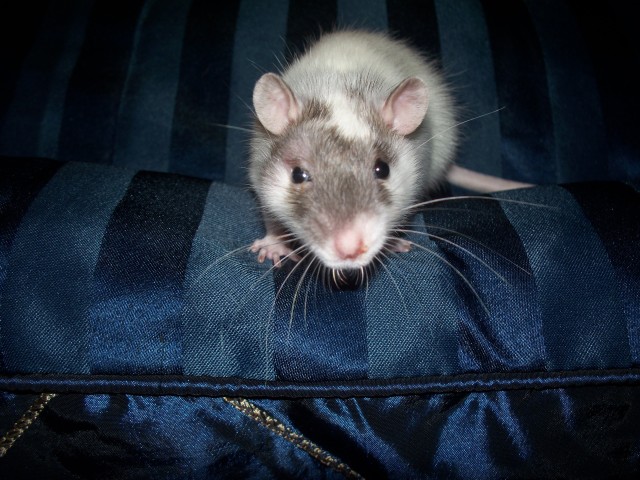 young male rat w/ face swollen around eye
Questionmy baby rat, Texas
QUESTION: A little ov
young male rat w/ face swollen around eye
Questionmy baby rat, Texas
QUESTION: A little ov
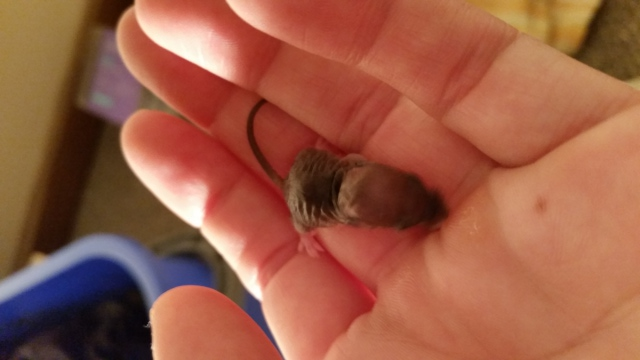 newborn rat/mice
Question
dehydrated baby Mouse or rat
HI I
newborn rat/mice
Question
dehydrated baby Mouse or rat
HI I
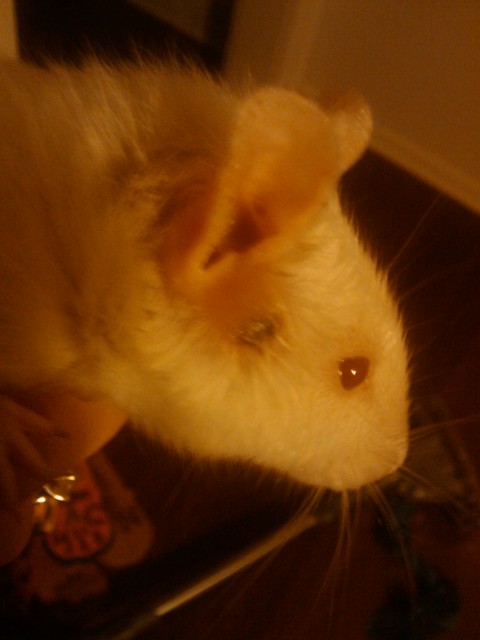 ear infection?
Question
QUESTION: I really appreciate your help
ear infection?
Question
QUESTION: I really appreciate your help
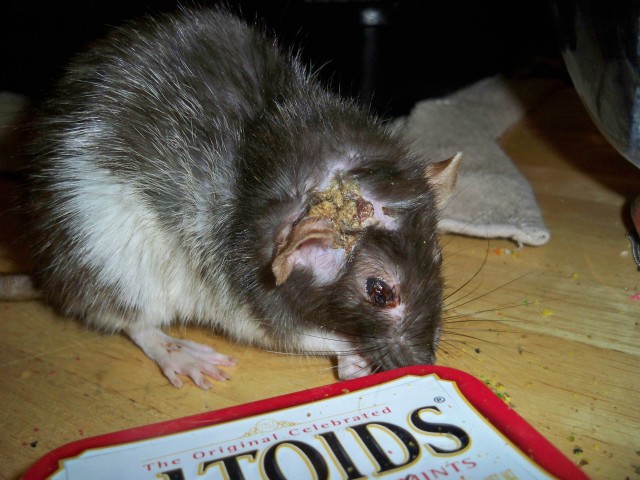 Large head wound
QuestionQUESTION: Hello,
You recently posted a questio
Large head wound
QuestionQUESTION: Hello,
You recently posted a questio